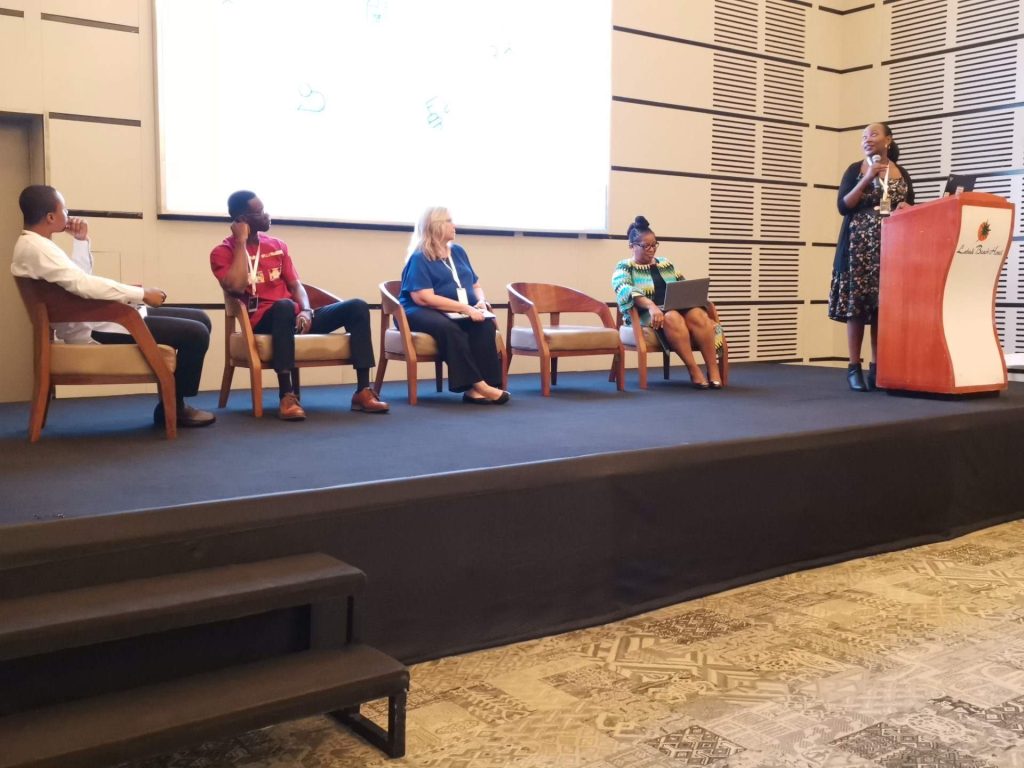|
Getting your Trinity Audio player ready...
|
Mr Gideon Sarpong Nyamekye, Technical Project Manager, PATH Ghana, has encouraged health professionals to embrace digital technology as an effective tool for enhancing healthcare delivery.
He said as Ghana grew into modernity, digital technology presented an opportunity to help simplify the life-saving work of health professionals.
Mr Nyamekye made this remark at a two-day conference in Accra, dubbed: “Ghana Women in digital Health”, organised by PATH Ghana, a Non-Governmental Organisation (NGO) into transformative innovation and improvement of healthcare delivery.
The conference was to encourage women in Ghana, especially students and young professionals to learn about digital health and provide them with ideas about what kinds of work and impact were possible in the digital field.
Mr Nyamekye said digital health was a new area that needed to be studied among professionals and be able to explore its potential benefits.
He said: “One of the key things that we are trying to achieve is that digital health is an area that is still new to people. They don’t have an idea of the specific roles and opportunities in this space. When people hear about digital health, they perceive that it is a software organisation or something, but there are specific roles that can positively affect health delivery.”
“Over the years, when people think about Microsoft, we think about building solutions, applications for other things, but we should also be mindful that health is an area that we can equally use technology to improve,” he added.
Ms Fatou Fall, Africa Regional Director of Digital Health, PATH, noted that digital technology had always been the preserve of men, however it was equally important for women to accept the challenge since it is a viable venture.
Ms Fall said some women, including herself had been able to overcome the barriers, hence an opportunity for women to take up the mantle and work in the digital space, which had enormous benefits while advocating the need for mentorship programmes to encourage women.
She said with the emergence of Artificial Technology (AI), it was necessary for Africa to nurture her workforce to develop its own kind of AI that is suitable for the continent.
Dr Salamatu Attah Nantogmah, Deputy Director, Information, Monitoring and Evaluation, Policy Planning and Evaluation Division of the Ghana Health Service (GHS), informed that as Ghana geared towards the attainment of the Universal Health Coverage (UHC) by 2030, the introduction of digital Technology in healthcare delivery was key.
She said effective and efficient use of Information Communication Technology (ICT) would not only translate into better and efficient health service delivery, but also improve training of health personnel and research at large.
“The Ghana Health Service over the past few years is advancing in digital health initiatives and creating opportunities for innovation in systems of infrastructure, workforce, policies and public and private partnerships,” she stated.
Dr Nantogmah said ICT would help to ensure better understanding of the gaps in the health sector and help create digital solutions for speedy realisation of good health coverage.
Dr. Afisah Zakaria, Chief Director, Ministry of Gender, Children and Social Protection (MOGCSP), acknowledged that digital health was a field packed with potentials, hence its tremendous opportunities must be tapped to improve public health outcomes.
She said: “In Ghana, women are making remarkable strides in digital fields, yet there remains a significant opportunity to further empower and support their contributions, particularly in the growing field of digital health. This focus plays a vital role in promoting gender equality and inclusivity in the technology sector, particularly here in Ghana.
The Chief Director said the educational investment served as a foundation for empowerment of women, particularly in the digital innovation space.
Source: GNA


